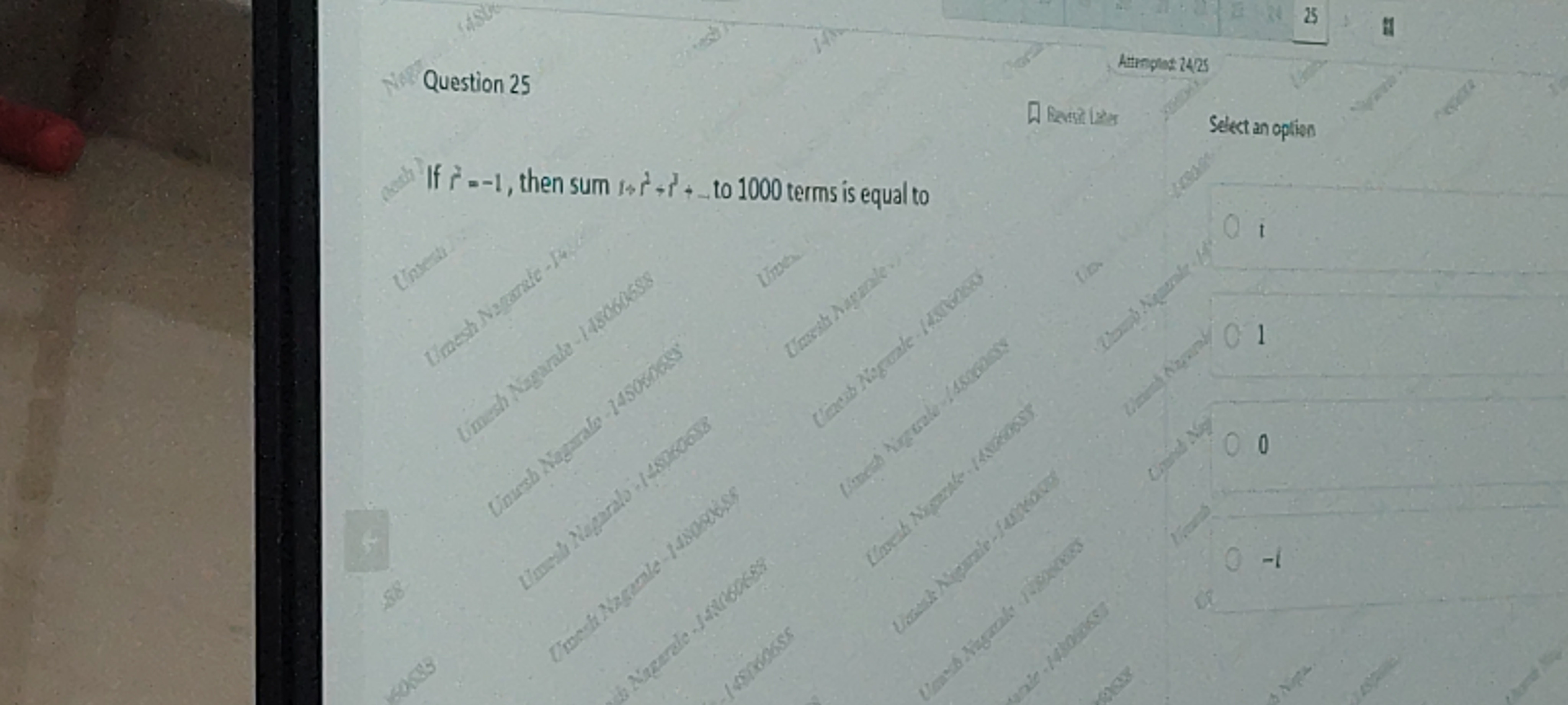Question
Question: If $i^2=-1$, then sum $1+i+i^2+\dots$ to 1000 terms is equal to...
If i2=−1, then sum 1+i+i2+… to 1000 terms is equal to

i
1
0
-i
0
Solution
The given series is a geometric series: 1+i+i2+… to 1000 terms.
Here, the first term is a=1.
The common ratio is r=i.
The number of terms is n=1000.
The sum of a finite geometric series is given by the formula:
Sn=1−ra(1−rn)
Substitute the values into the formula:
S1000=1−i1(1−i1000)
Now, we need to evaluate i1000. We know that the powers of i follow a cycle of 4:
i1=i
i2=−1
i3=i2⋅i=−i
i4=i2⋅i2=(−1)(−1)=1
To find i1000, we divide the exponent by 4:
1000÷4=250 with a remainder of 0.
This means i1000=(i4)250=1250=1.
Substitute i1000=1 back into the sum equation:
S1000=1−i1(1−1)
S1000=1−i0
S1000=0
Alternative Method (Grouping):
We know that the sum of any four consecutive powers of i is zero:
ik+ik+1+ik+2+ik+3=ik(1+i+i2+i3)
=ik(1+i−1−i)
=ik(0)=0
The given series is 1+i+i2+⋯+i999.
There are 1000 terms in the series. Since 1000 is a multiple of 4 (1000=4×250), we can group the terms into 250 sets of four consecutive powers of i:
(1+i+i2+i3)+(i4+i5+i6+i7)+⋯+(i996+i997+i998+i999)
Each group sums to 0:
(1+i−1−i)=0
(i4(1+i+i2+i3))=1(0)=0
And so on.
Since there are 250 such groups, and each group sums to 0, the total sum is:
S1000=0+0+⋯+0 (250 times)
S1000=0
Therefore, the sum is 0.
